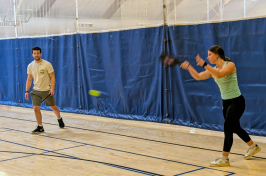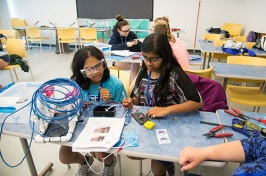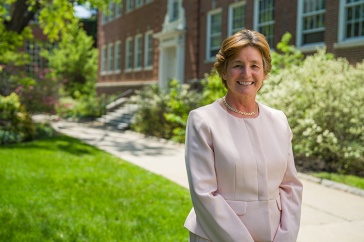A landmark study by researchers at the University of New Hampshire finds gaps regarding awareness of mandatory reporting laws among the general public in New Hampshire, a state where all adults are required by law to report suspected child abuse to authorities, as well as misperceptions that reporting suspected abuse may lead to worse outcomes for children. Among other findings, the survey shows a substantial minority—39 percent—of adults surveyed were unaware of their responsibility under state law to inform child protective service agencies of suspected child abuse and neglect, despite statewide educational efforts to spread awareness of the law.
UNH’s Crimes against Children Research Center has released two research briefs on studies that explore challenges to the goals of so-called mandated reporter laws. The first brief, titled “A Statewide Study of the Public’s Knowledge of Child Abuse Reporting Policies,” highlights findings from a study published in the Journal of Public Child Welfare. The study of more than 500 New Hampshire residents asked six questions on understanding of the state’s child abuse reporting policies. The second study, titled “Factors that Influence Child Abuse Reporting: A Survey of Child-Serving Professionals,” looks into awareness of these laws among child-serving professionals. Both studies, funded by the National Children’s Alliance, take aim at concerns of under-reporting of suspected child abuse by both professionals and members of the general public.
While nearly all U.S. states designate as mandated reporters certain professionals—usually professionals that may serve children such as counselors, teachers, and physicians—New Hampshire is one of just 19 U.S. states or territories that have enacted so-called universal mandated reporting laws, under which all adult members of the public are legally required to report child abuse or neglect when they respect it. States establish these laws with the goal of identifying more cases of abuse and protecting more children from maltreatment.
“For these laws to work, the public must be aware of them and influenced by them, but this study indicates these components are lacking,” explains study lead author Wendy Walsh, a researcher at the UNH Crimes against Children Research Center. “In fact, our findings showed a very significant proportion of members of the public in our state holds serious misconceptions about their legal responsibility to report abuse and protect children.”
Many members of the public were unaware of their responsibility to report suspected abuse, or of the consequences of failing to do so. Among the first study’s findings:
- A substantial portion (39 percent) of participants were not aware they are required to report possible child abuse or neglect to the authorities.
- More than half of participants (61 percent) were not aware that someone who fails to make a report when they suspect a child is being abused or neglected could be charged with a misdemeanor.
- The majority of participants (71 percent) were not aware that the law does not require the child be taken out of the home immediately if the child is being abused.
“The implication here, both in New Hampshire and other states implementing or considering universal reporting laws, is that the success of these laws requires a public education component,” says Teresa Huizar, executive director of the National Children’s Alliance, a leading voice in addressing and preventing child abuse. “These findings certainly show that awareness of these important child protection laws is lower than ideal, but even more concerning is that the study shows a significant barrier to the reporting of child abuse is the worry that making the report may not improve the child’s situation. States with these laws or considering implementing them should include a public education component on how the response system works to support families and protect children, and to dispel myths about the child protection system.”
The second brief contains results of a separate nationwide survey of child-serving professionals to identify potential problems with the reporting process. Researchers polled more than 550 professionals including counselors, teachers, and medical professionals—a professional grouping required by law to report suspected abuse in virtually all U.S. states and territories—about ways in which the child abuse reporting process could be improved, what barriers prevent these professionals from reporting suspected abuse, and whether they are satisfied with existing reporting protocols and training provided by their agencies.
Most of the respondents (61 percent) indicated they believe the child abuse reporting process needs improvements. Among areas for improvement cited by respondents were:
- Improved screening process at intake (29 percent), ensuring that all CPS workers taking reports ask the same questions, have the same standards, level of information, and professionalism
- Changes to make it easier to make a report (28 percent), such as improvements in wait and response times and open hours for state hotlines and other reporting services
- A more comprehensive agency response after a child abuse report (18 percent)
- More feedback for reporters about the status of the report (17 percent)
Like members of the general public, child-serving professionals also cited factors that may hinder them from making the decision to report suspected child abuse, including concerns that reporting will not help the family (51 percent), fears the reporting would damage their relationship with the family (49 percent) and previous poor experiences with CPS (47 percent).
-
Written By:
Robbin Ray ’82 | UNH Marketing | robbin.ray@unh.edu | 603-862-4864


















































